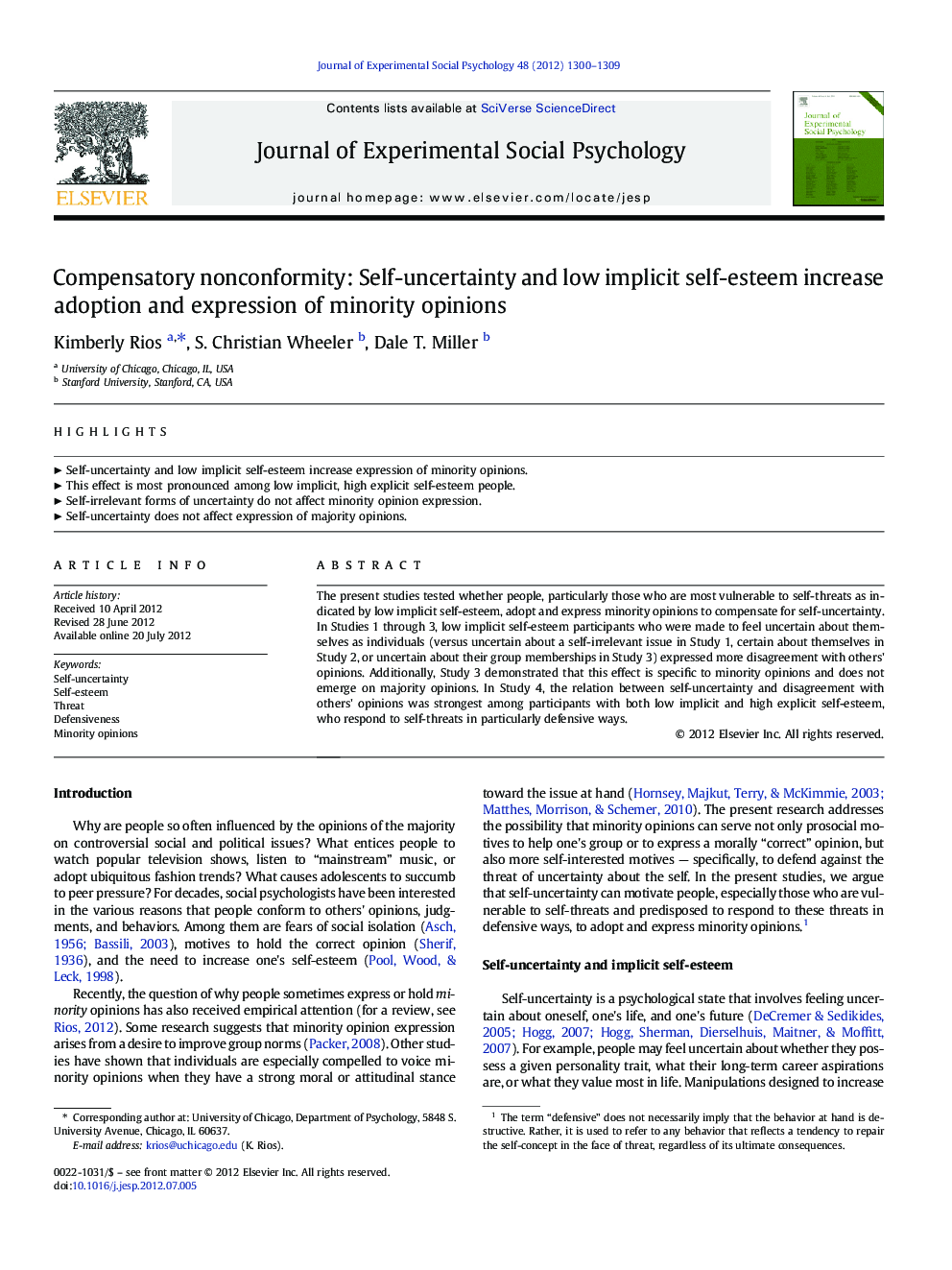| Article ID | Journal | Published Year | Pages | File Type |
|---|---|---|---|---|
| 948077 | Journal of Experimental Social Psychology | 2012 | 10 Pages |
The present studies tested whether people, particularly those who are most vulnerable to self-threats as indicated by low implicit self-esteem, adopt and express minority opinions to compensate for self-uncertainty. In Studies 1 through 3, low implicit self-esteem participants who were made to feel uncertain about themselves as individuals (versus uncertain about a self-irrelevant issue in Study 1, certain about themselves in Study 2, or uncertain about their group memberships in Study 3) expressed more disagreement with others' opinions. Additionally, Study 3 demonstrated that this effect is specific to minority opinions and does not emerge on majority opinions. In Study 4, the relation between self-uncertainty and disagreement with others' opinions was strongest among participants with both low implicit and high explicit self-esteem, who respond to self-threats in particularly defensive ways.
► Self-uncertainty and low implicit self-esteem increase expression of minority opinions. ► This effect is most pronounced among low implicit, high explicit self-esteem people. ► Self-irrelevant forms of uncertainty do not affect minority opinion expression. ► Self-uncertainty does not affect expression of majority opinions.
